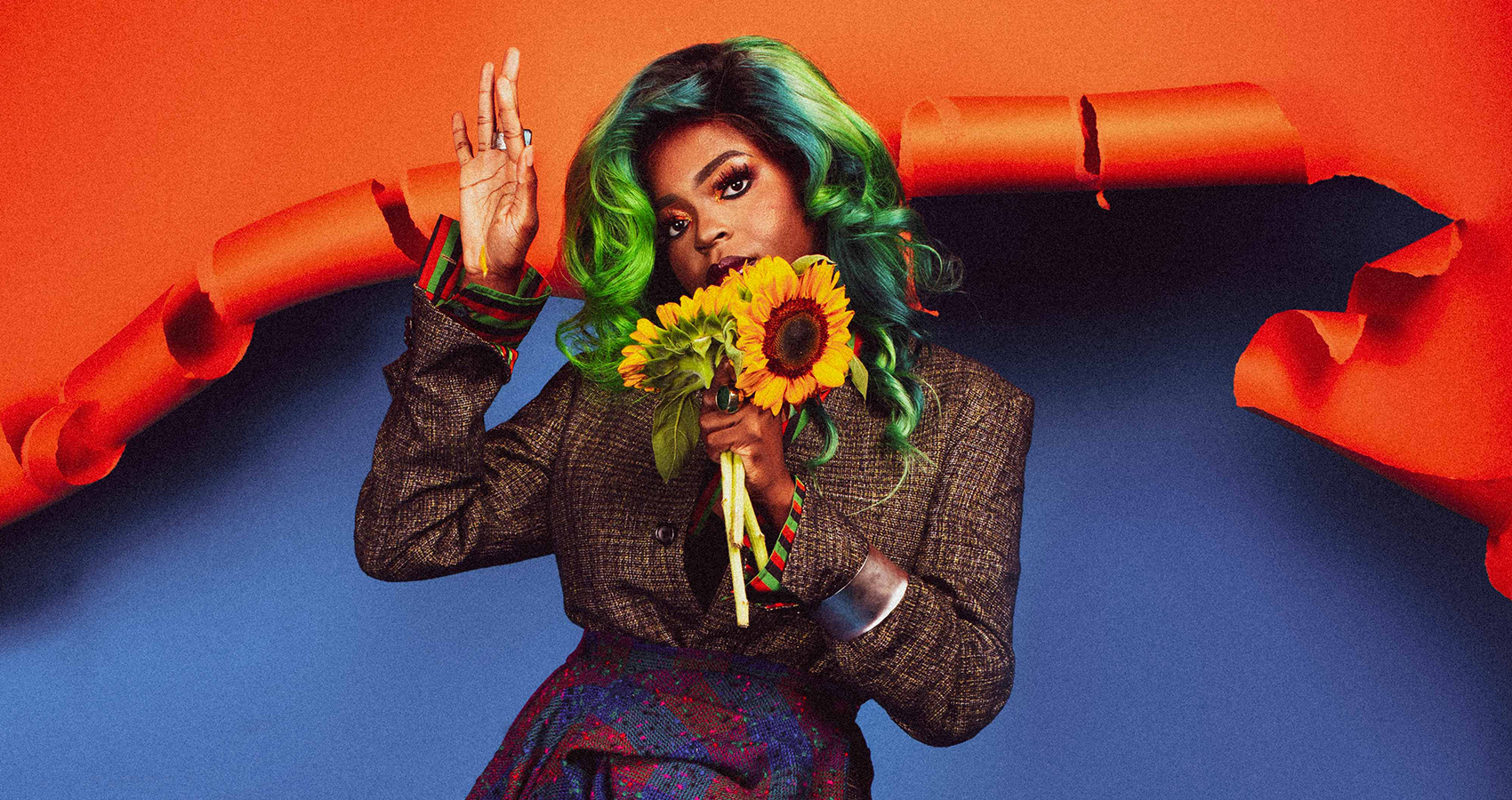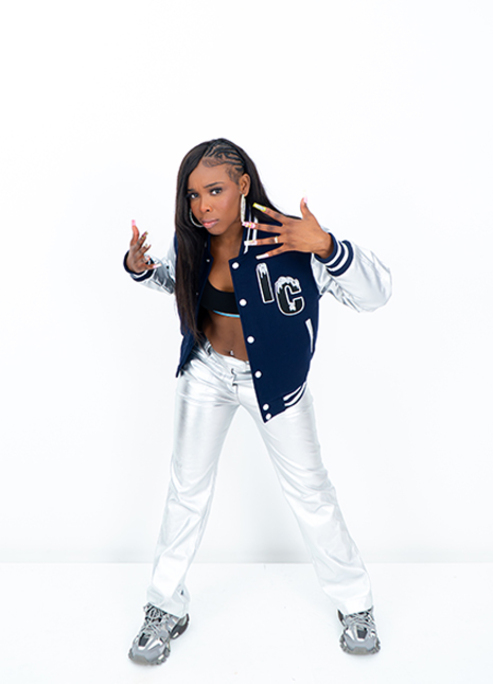We Talk With Grammy-Nominated Artist Kah-Lo About Her New Single “Melanin”
Spreading Positive Vibes and Performing in the Age of COVID.
A lot has changed since the last time we had a chance to sit down with the emerging Nigerian superstar Kah-Lo. After cutting records with Diplo, Riton, Mr. Eazi, Davido and Idris Elba, and securing a Grammy nomination for best dance recording, Kah-Lo has really hit her stride. She is also now the most streamed female Nigerian artist in the world on Spotify. We got a chance to chat with her following the release of her new single “Melanin” a collaboration between Kah-Lo and NYC-based Haitian DJ Michael Brun via the digital Bayo x Bacardi Tour. Check out the interview below!
Hi Kah-Lo! You’ve been living, doing your thing. This is coming up on year four for you. How are you feeling in general as an artist right now?
As an artist it's actually scary to be honest because we don’t know anything, we don’t know when live shows are coming back, we don’t know when the time is right for things. There’s a lot of unrest, so is it even the right time to release music, or shamelessly plug yourself? It’s a quite interesting, but scary time: fear of the unknown, no one knows anything, but I’m open minded!
So you’ve got this new single with Michael Brun, "Melanin" How did this collaboration come about?
So with Michael, I actually met him when I was with [Mr. Eazi], in the studio because I just hang out with Eazi, because that’s my guy! So Michael came in the studio too and they were working on this track for J Balvin and I ended up vibing with Michael and he was like, “Oh, I live here.” and I said, oh that’s interesting! I’m in London a lot, nowadays, but I ended up moving [to Brooklyn] and now we’re neighbors actually!
What had happened was, because we’re neighbors I would go to the studio the most with him and I was like, I’m getting groceries, let’s go get record something! He’s actually fun to be around and he’s cool and he gets my vibe, which is important because when you’ve made a lot of songs in a certain bubble, people try to place you in that bubble, but as Michael ’s Haitian and I’m Nigerian we have this extended ear, having moved here when we were very young so we were able to make a lot of stuff, so "Melanin" is the tip of the iceberg.
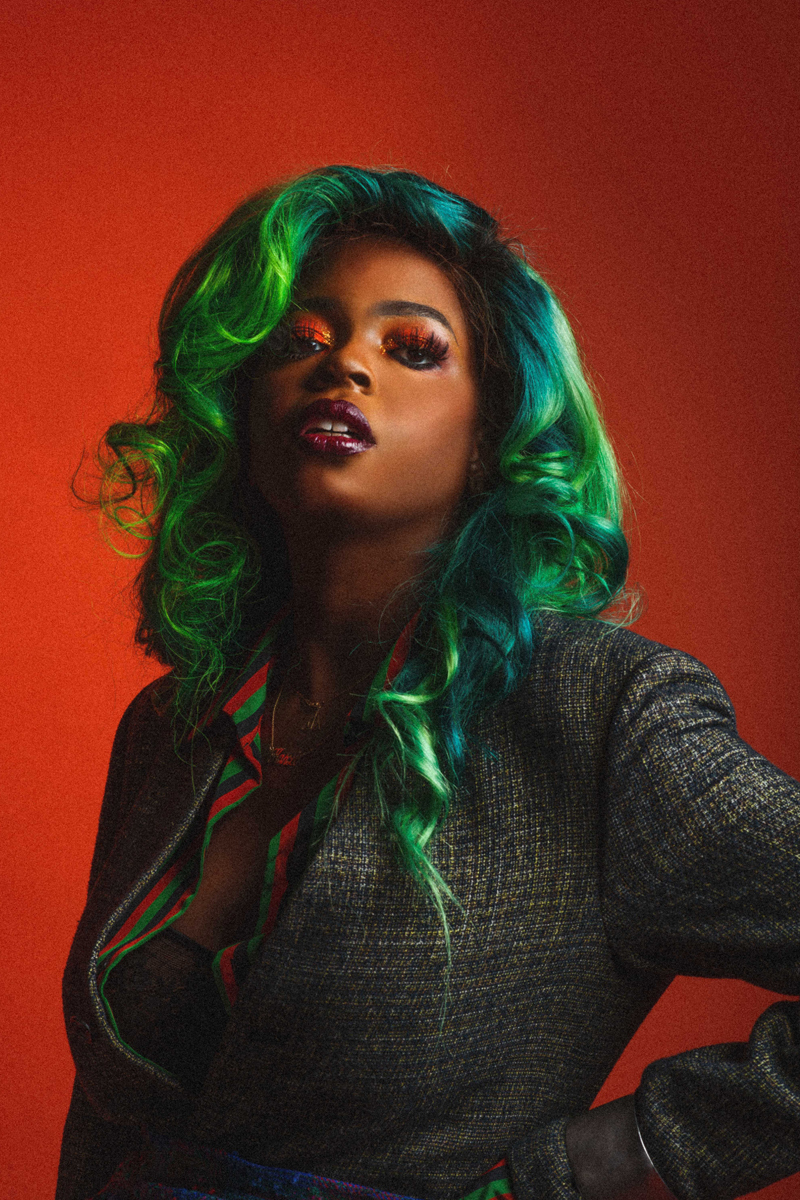
The thing we really want to know is why "Melanin", and why now? How did the idea to put this carefree summer track into the world arise between you and Michael?
So what had happened was during one of those mini-sessions where we were recording a bunch of stuff, we were wrapping up and he said, do you want to try something over this beat, and you hear the drums kick in and I was like wow, as the track looped: “Ok, this sounds like everyday people. This sounds like rooftop parties. This sounds like how summertime in New York City should feel, but we don’t have it because of COVID!” So I was like yeah, he told me to let him know when I had written something, and I was like that’s it, that’s the track,
I really wanted to put "Melanin" in there because right now I feel that we need something that uplifts our uniqueness, because it was yesterday that they shot Jacob Blake wasn’t it? It’s insanity all the things that just keep happening, I even had to take a break from social media because of it, I was already dealing with shit and then that happened, so I wanted to make something elevated. Every human being on this planet has melanin, {as black people} we just have copious amounts of it and that should be celebrated.
Before we caught it on the streaming platforms you premiered "Melanin" at the Bayo x Bacardi Digital Tour, how was it performing on a digital stage? Did you enjoy it?
It was a whole lot of fun, maybe a little too much fun! You know, Bacardi sponsored it, unlimited amounts. It was very interesting to do, because you know during COVID a lot of us artists figure out different types of things.
I tried out a DJ set which was fun, but, I’m not a DJ first of all, and I don’t like to DJ, I like to be the one dancing in front of the DJ, I don’t like to be the one behind the decks, because it’s stressful, you’re responsible for the entire vibe of the party. It’s up to you, I don’t want that I just want to just vibe, you know? I tried that, but it didn't work out. I tried putting some covers up, but I didn’t like that.
I’m the type where I love to be on stage, I love the attention, I’m an attention whore, I need that and when you don’t have that energy to feed off of it’s very difficult but at the Bayo x Bacardi tour, even though you didn’t have the energy right in front of you they did it in this very great way where the decor, all these palm trees lots of Bacardi around and then they had people on zoom so you felt it and it didn’t feel lonely, like you were performing into a phone camera or to your neighbors at home, the vibe is not the same in your apartment, it's hard to replicate the vibe.
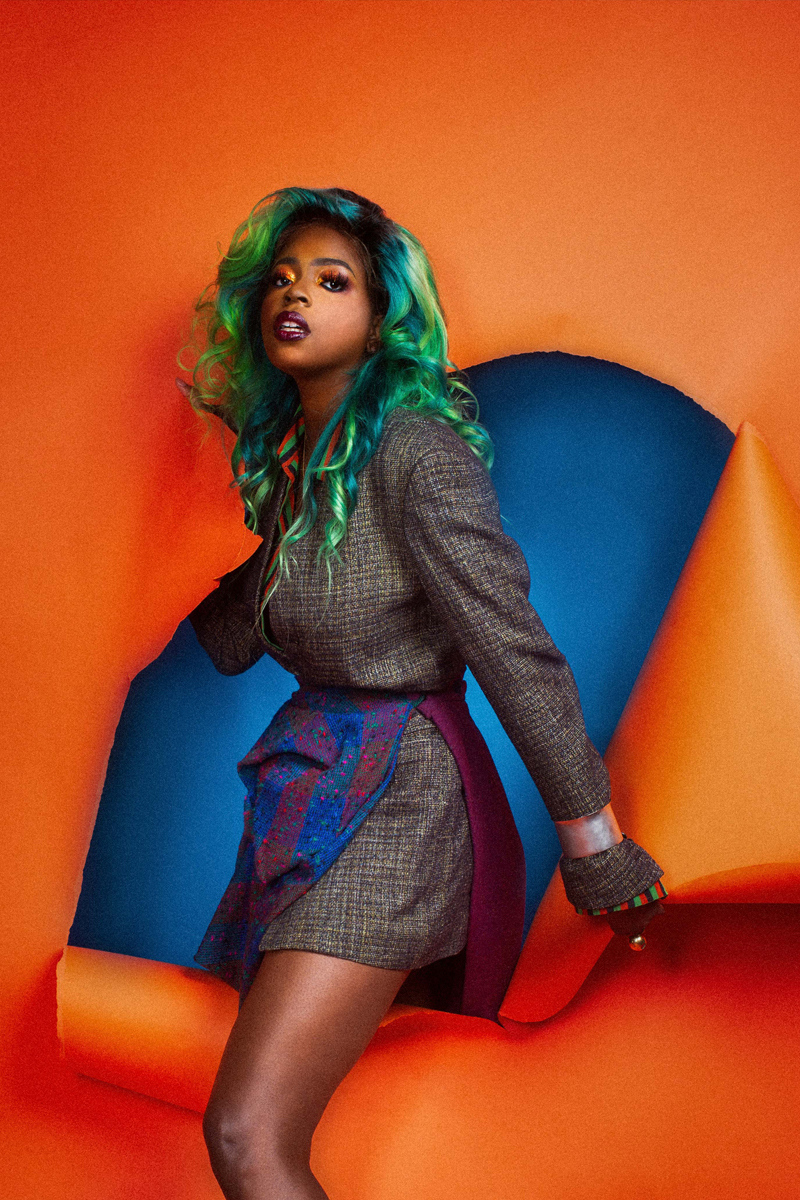
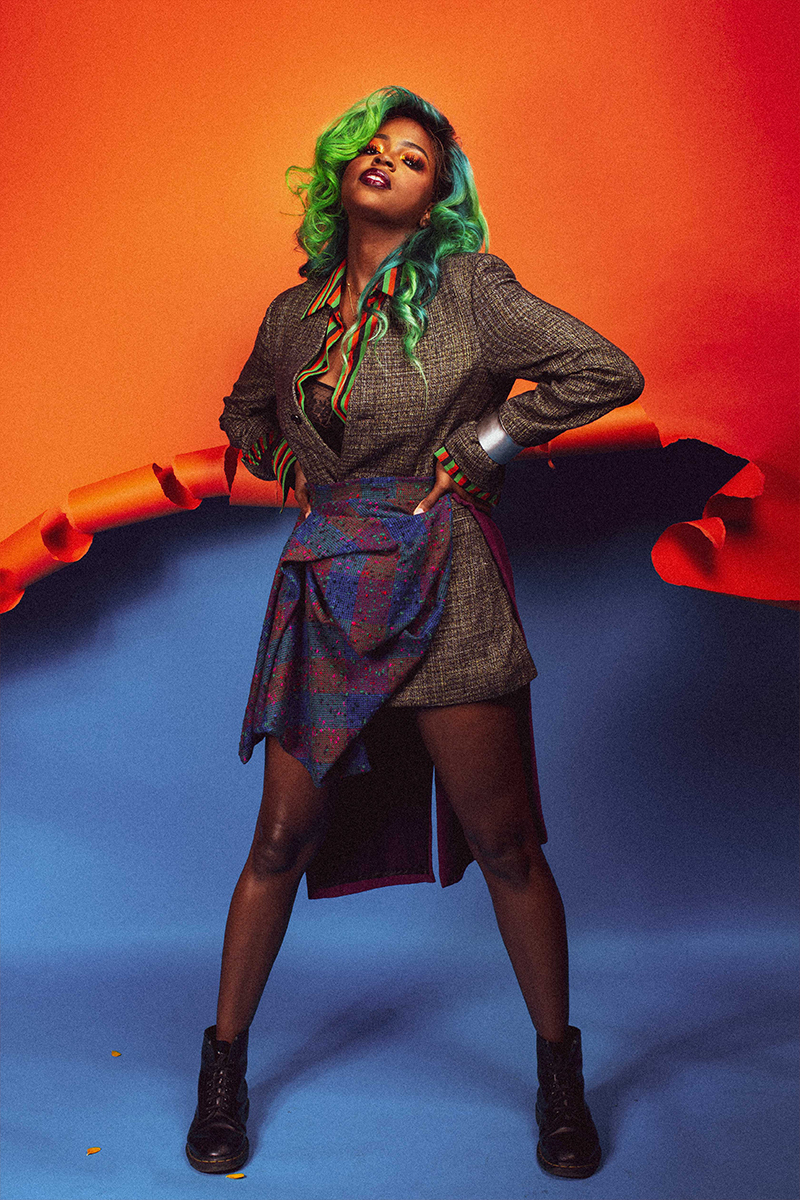
So especially now, which do you enjoy more? creating music and laying down tracks or actually performing?
I would say I love performing more as of right now, I love love love performing because even when I write songs I do it with the intent of ‘okay what’s the music video gonna look like, how are people going to relate to this track’ I mean you’ve known me for all of about 20 minutes, but I feel like I have this positive vibe, and some people are not so lucky, some people struggle with mental health and I want the people who hear my songs to just have this joy that I have excessive amounts of.
So, I like performing more because I get to see how it connects with people, because even with "Melanin", a lot of people I felt would connect to the melanin part, but they’re connecting more to the summertime part, like wow! This is what my summer should’ve been but with COVID, but it's really interesting to see people's interpretations of my songs when I perform.
This song is a shout out to black and brown people all over the world, as a Nigerian woman, how do you think the impact of this song is driving forward the narrative for black girls?
Well, I mean especially being Nigerian, there’s always people saying: ‘Oh, you look too dark. You’re spending too much time out in the sun.’ but I love to spend time in the sun and I love being dark. So let all that sun just absorb, I want that, because you know, it just glows! (When you moisturize) and I want people to be proud of that.
We’re in the middle of coronavirus and all of this racial unrest. What does it mean to you to be a Black woman in the midst of all of this?
Well pandemic-wise, it just, you’ll go to the doctor and hear that you need more vitamin D so that you can make more antibodies and it’s like we’re staying inside so we don’t have enough vitamin D, because you want to stay inside to protect yourself but you also need vitamin D and you need the sunshine because the darker you are the more sunshine you need to produce vitamin D.
But generally, it’s a little exhausting, because even what happened yesterday with Jacob Blake and all of the stuff that we’ve not even come down from, because there’s protests going on from what the police did just yesterday and putting that microscope you still think: “Are they listening?” “Do they care?” It makes me scared, but I hope that everyone gets out and votes, not just in this election but every election.
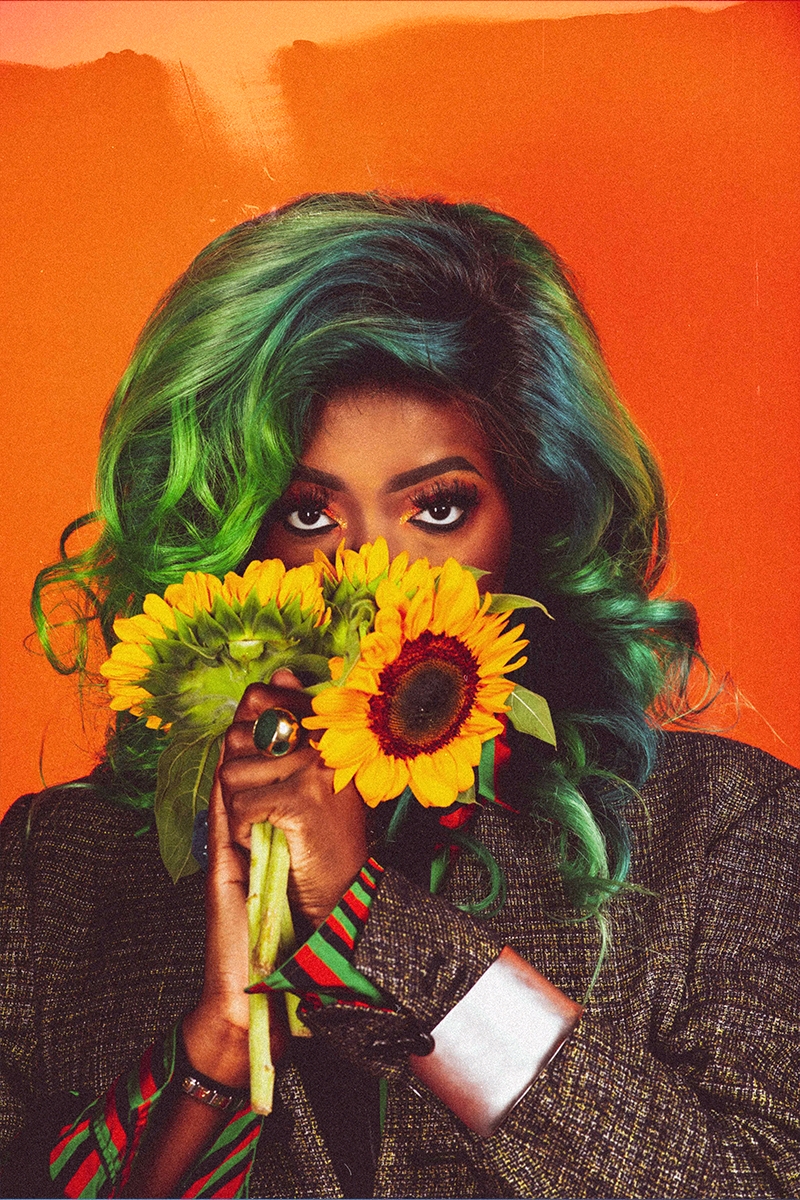
We touched on this off camera, but you’ve cut records with other Nigerian and African artists, like Mr. Eazi, but music critics in analyzing your style have come to see your style as ‘alternative Nigerian’. What’s your take on it? Does it feel as if they’re putting you in a box?
It’s very interesting because, you know, alternative music in Nigeria is essentially any music that isn’t mainstream Nigerian music, like Afro-pop or Afrobeat. So if it’s not that, and doesn’t conform to the same style of drum patterns they just call it alternative, because they don’t know how to place it. Even though it’s more like a community, I would say my genre doesn’t essentially fit what they assume a Nigerian artist should sound like, at all, not in any capacity, some would go so far as to say, she’s not really Nigerian, even though I was born and raised there.
It’s a very strange pull and push type of thing, because on one hand I’m like: hey guys! I’m Nigerian, but *skrrt* I don’t make Afrobeat so don’t box me into that but I'm still Nigerian. In every field, even in House I’ll release a song and they’ll be like: “Hey this is a great Afro-pop song!” but even “Rinse & Repeat” wasn’t an afro-pop song at all. It was very much deep house, underground stuff, but they’re like oh it’s Afro-house because I’m a Nigerian artist. So it's a very interesting battle I still fight to this day.
With regard to music and the way we see it as creatives and cultural gatekeepers, in a perfect world where would you like to see the future of music go, especially for Black and brown people?
I’d say I’d like to see more black people as the decision makers, the people in power. We could be the face, the people on stage. I believe at some point of the pandemic nine out of ten of the top ten streamed tracks were made by black artists, but how many of those have black execs behind them who understand? so I don't have to fight on things like makeup, like if they’re hiring someone it has to be someone who understands that my skin is not just one tone, I have hyperpigmentation so my skin is not one color. Things like that. As decision makers, we need more power.
Your new single "Melanin" has an empowering message behind it as is. What message would you like to use this platform to send to black and brown girls and women across the world?
I’d like to tell them they’re not crazy. People try to say: “Oh, you’re being so angry. You’re being hostile, or you’re being loud.” But, we’re responding that way because people like to take advantage of us. Even the situation with Megan Thee Stallion, who’s probably the biggest rapper out there next to Nicki and Cardi B and she still has to be out here like: “hello! This thing happened!” We really have to hammer it on when you look like us. I’d like to tell them that you’re not crazy.
So beyond being an artist, you’re also a boss in this piece! Right before the new year, you were talking about how you wanted to put out more solo content and on top of that, you also have a label! Tell us more about that! What can we come to expect from you in the near future as an artist and label owner?
So the label is called Lagos Way Records, because Lagos and way. I’m trying to transport people to my little universe. I’m going to start putting out songs that are fully me and capture the vibe of Lagos. Lagos is a very energetic city, maybe even more energetic than New York, if I can even say that. (Hmm, I might get in trouble for that.) but Lagos has this energy that I haven’t seen anywhere else. It's very insane, like we’re all crazy to some degree. There’s a lot against us just being from there and we always find a way to make it work.
Even in parties, you’ll go to the club and maybe out of ten people somebody hasn’t been paid their salary or the government doesn’t want someone to start their company, you know all types of fucked up shit. But once they’re in the club on the dance floor, once the henny is in the system, all of that’s out the window and it’s just vibes. And I love that about Lagos because I have that energy too, because once the music hits you just forget everything and all my songs, even the sad ones. That's what I want people to feel, just pure, unfiltered joy.
Thank you for sitting down with us! How can the world check you out and stay updated on your new releases?
You can follow me on social media via @thatkahlo on Instagram and Twitter and my music streams on all major platforms!
Up Next, Photographer Agatha Powa On Creativity, Working With Converse, And Her Life Behind The Camera



